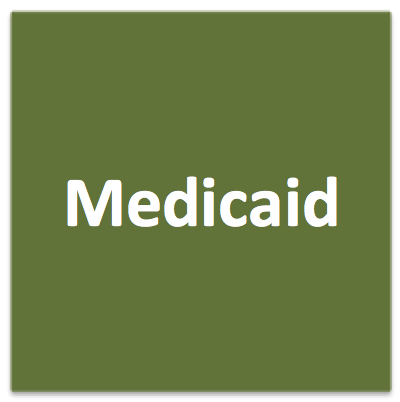
The Graham-Cassidy bill to repeal and replace the Affordable Care Act contains “significant challenges” that deserve “thorough discussion, examination and analysis,” the National Association of Medicaid Directors said Thursday, urging senators not to rush complex Medicaid reform.
A vote on the bill is expected in the Senate next week, while the legislative body can still use budget procedures that require only 50 votes for passage instead of 60.
The NAMD Board of Directors said in a statement that it is concerned that the legislation would undermine some members’ efforts to improve health outcomes while being fiscally responsible to taxpayers and also would “fail to deliver on our collective goal of an improved health care system.”
The bill, which is referred to by the names of two of its sponsors, Sens. Lindsey Graham (R-SC) and Bill Cassidy (R-LA), would replace open-ended federal subsidies for Medicaid with per-capita caps and block grants to states. It’s unclear, however, how states would use the grants, what programs the grants might fund and the overall impact that they would have on state budgets, operations and beneficiaries, the Medicaid directors said.
“Taken together, the per-capita caps and the envisioned block grant would constitute the largest intergovernmental transfer of financial risk from the federal government to the states in our country’s history,” the statement said. “While the block grant portion is intended to create maximum flexibility, the legislation does not provide clear and powerful statutory reforms within the underlying Medicaid program commensurate with proposed funding reductions of the per capita cap.”
Also, NAMD said, the bill’s requirement that states implement the block grant component by Jan. 1, 2020, is not realistic, and the “vast majority” of states would not be able to do so, given the complex nature of the task.
The Congressional Budget Office on Monday said it was aiming to provide a preliminary assessment of the bill by early next week, although the agency said it would not be able to provide a score “for at least several weeks.”
“Any effort of this magnitude needs thorough discussion, examination and analysis, and should not be rushed through without proper deliberation,” NAMD said. “The legislative proposal would not even have a full CBO score until after its scheduled passage, which should be the bare minimum required for beginning consideration.”
Consulting firm Avalere Health estimated that the bill’s per capita cap would cut federal Medicaid spending by $1.1 trillion, or 12%, through 2036 compared with current law.
The Center on Budget and Policy Priorities said that the block grant and Medicaid per capita cap cuts combined would result in at least a $80 billion federal funding cut in 2026, and then in 2027, when the block grant would be eliminated and the per capita cap cuts would continue to grow, the combined federal funding cut would be $299 billion compared with current law. Those numbers are on top of block grant cuts that would affect Medicaid expansion and marketplace subsidies, according to the center.
The Kaiser Family Foundation estimated that overall Medicaid funding to the states would decrease by $160 billion from 2020 to 2026 compared with current law; that total includes a $107 billion cut via block grant funding and a $53 billion cut via per enrollee caps. The year 2027 would see a total loss of $240 billion if the law was not reauthorized, the foundation estimated.
Groups such as LeadingAge and the American Health Care Association/National Center for Assisted Living have expressed concerns that major reductions in Medicaid funding to states could affect assisted living communities that provide home- and community-based services to their residents through Medicaid waivers. With limited resources, states could cut HCBS funding because it is not mandated, they said.
The Senate Finance Committee has scheduled a hearing for 10 a.m ET Monday to discuss the bill. The Senate Homeland Security and Governmental Affairs Committee, which is chaired by one of the bill’s sponsors, Sen. Ron Johnson (R-WI), had scheduled a hearing for 10 a.m. ET Tuesday to discuss the use of block grants in healthcare, but the hearing has been removed from the committee’s schedule.
The fourth sponsor of the bill is Sen. Dean Heller (R-NV).
CNN announced Thursday that it will host a 90-minute town hall with Graham and Cassidy, who will debate healthcare with Sens. Bernie Sanders (I-VT) and Amy Klobuchar (D-MN), on Monday at 9 p.m. ET.



